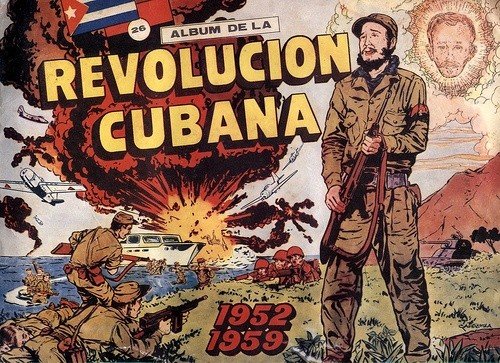The Cuban Revolution
The Cuban Revolution

/CubanRevolution-58b1c4b33df78cdcd80f0071.jpg)
The Cuban Revolution was an armed revolt conducted by Fidel Castro's 26th of July Movement and its allies against the authoritarian government of Cuban President Fulgencio Batista .in the final days of 1958 ragged rebels began the process of driving out forces loyal to Cuban dictator Fulgencio Batista. By New Year’s Day 1959 the nation was theirs, and Fidel Castro, Camilo Cienfuegos, and their companions rode into Havana and history. The revolution began long before, however, and the eventual rebel triumph was the result of many years of hardship, guerrilla warfare, and propaganda battles.
The revolution began in 1952 when former Army Sergeant Fulgencio Batista seized power during a hotly contested election. Batista had been president from 1940 to 1944 and ran for president in 1952. When it became apparent that he would lose, he seized power before the elections, which were canceled. Many people in Cuba were disgusted by his power grab, preferring Cuba’s democracy, as flawed as it was. One such person was rising political star Fidel Castro, who would likely have won a seat in Congress had the 1952 elections taken place. Castro immediately began plotting Batista’s downfall.
On the morning of July 26, 1953, Castro made his move. For a revolution to succeed, he needed weapons, and he selected the isolated Monaca barracks as his target. One hundred thirty-eight men attacked the compound at dawn: it was hoped that the element of surprise would make up for the rebels’ lack of numbers and arms.The attack was a fiasco almost from the start, and the rebels were routed after a firefight that lasted a few hours. Many were captured. Nineteen federal soldiers were killed; the remaining ones took out their anger on captured rebels, and most of them were shot. Fidel and Raul Castro escaped but were captured later.
The Castros and surviving rebels were put on public trial. Fidel, a trained lawyer, turned the tables on the Batista dictatorship by making the trial about the power grab. Basically, his argument was that as a loyal Cuban, he had taken up arms against the dictatorship because it was his civic duty. He made long speeches and the government belatedly tried to shut him up by claiming he was too ill to attend his own trial. His most famous quote from the trial was, “History will absolve me.” He was sentenced to 15 years in prison but had become a nationally recognized figure and a hero to many poor Cubans.
In my opinion the Cuban Revolution was just armed conflict. I don't think they should have went against they're own president. Even if it was government problems.
Click her for more info
http://www.coldwar.org/articles/50s/TheCubanRevolutionof1959.asp
Comments
Post a Comment